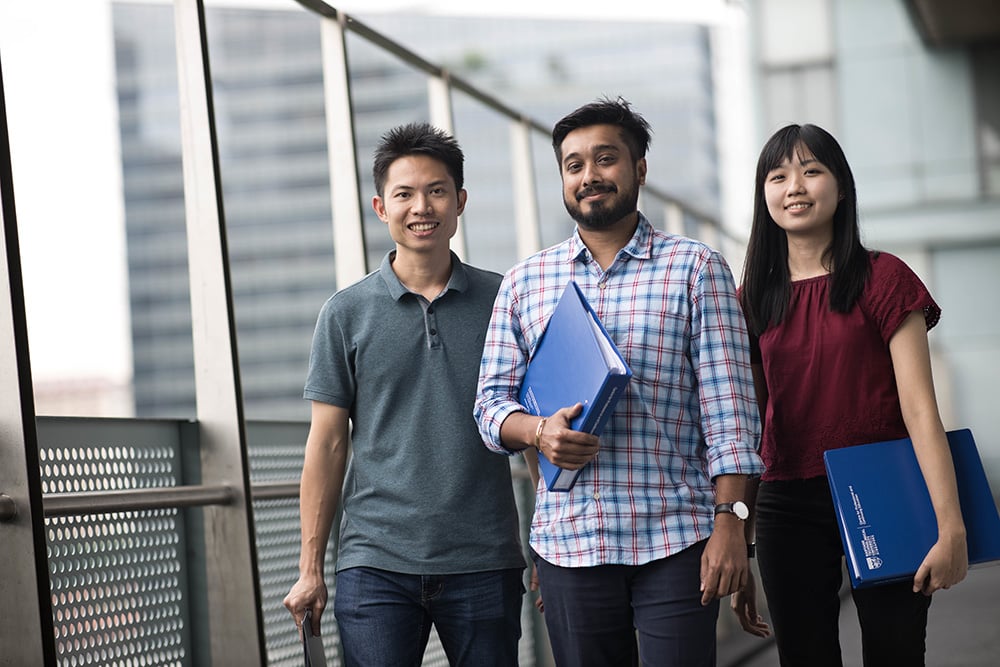Introduction
Mechanical designs can be complex involving numerous parts and sub-assemblies. In the manufacture of these parts and sub-assemblies, they are subjected to variation. Hence, a better understanding of their form, fit and function is vital. For better clarity and quality acceptance, more firms are now specifying their engineering drawings using GD&T symbols so as to better control its geometric and functional characteristics. Tolerance stackup methods are then used to ensure that the cumulative effects of these tolerances are acceptable to the functional aspects in a sub-assembly. In this course, a disciplined tolerance stackup and analysis approach would be applied on engineering part assemblies subject to different and multiple GD&T specifications.
Objectives
2. To learn and follow the principles and methodologies in evaluating design tolerances through a disciplined approach.
3. To Assess tolerance stickup approaches on GD&T specified parts for application proficiency
Underpinning Knowledge:
1. General Tolerance Concepts.
2. Types of Fit Systems.
3. Tolerance Analysis Methods.
4. Statistical Sampling and Tolerance Setting in Tolerance Stackup and Analysis
5. Statistical Stack-up Methods, Toleranced-Based Analysis, Computer-based Stack Tolerancing methods.
6. Tolerance Allocation Methods.
7. Tolerance Analysis and Stackup Concepts with GD&T for Part Stacks.
8. Tolerance Analysis and Stackup on Size Limit Transfer for Part and Assembly Stacks.
9. Tolerance Analysis and Stackup on Axis Transfer for Part and Assembly Stacks.
Outline
Day 1
• Understand and Use of Tolerance Development Process Methods
Day 2
• Understand and Use Tolerance Limit Setting for Part Yield, Statistical Tolerance Analysis Methods for Manufacturing Process Applications, and Sensitivity Analysis methods for Tolerance Optimisation
Day 3
* Assessment 1
• Applying Statistical Stack-up Methods, Toleranced-Based Analysis, Computer-based Stack Tolerancing methods to handle tight tolerances and functional requirements
Day 4
* Assessment 2
• Tolerance Allocation Methods for Design and Processes.
• Tolerance Analysis and Stackup Concepts with GD&T for Part Stacks.
Day 5
• Tolerance Analysis and Stackup on Size Limit Transfer for Part and Assembly Stacks
• Tolerance Analysis and Stackup on Axis Transfer for Part and Assembly Stacks
• Revision - Discussion and Clarifications
* Assessment 3
Who should attend
Personnel who need to read engineering drawings. Relevant occupations include:
• Engineering Managers
• Product Designers
• Process and Tooling Engineers and Technical Personnel
• Quality Control Inspectors
• Procurement Personnel
Fees and Funding
Standard Course Fee: S$1,826.28
|
SSG Funding Support |
Course fee |
Course fee payable after SSG funding, if eligible under various schemes |
|
|
|
BEFORE funding & GST |
AFTER funding & 7% GST |
AFTER funding & 8% GST |
|
Singapore Citizens (SCs) and Permanent Residents (PRs) (Up to 70% funding) |
S$1,691.00 |
S$542.81 |
S$547.88 |
|
Enhanced Training Support for SMEs (ETSS) |
S$204.61 |
S$209.68 |
|
|
SCs aged ≥ 40 years old |
|||
• NTU/NIE alumni may utilise their $1,600 Alumni Course Credits. Click here for more information.
Note: Course fee payment made before 1 Jan 2023 will be subject to GST at 7%, and payment made on or after 1 Jan 2023 will be subject to GST at 8%.
Trainers

Dr Lye Sun Woh
Dr Sun-Woh Lye, PhD, FIES, is currently a professor from the School of Mechanical and Aerospace Engineering, Nanyang Technological University, Singapore. He has taught for more than 20 years at both undergraduate and graduate levels relating to design and manufacturing modules such as Design Optimisation and Analysis, Computer Aided Design, Engineering, Advanced Product Design for Manufacture, Virtual Design for Manufacture, Industrial Design, Machining and Process Engineering. He is also active in conducting of professional engineering courses as well as served as consultant at both project advisory and development roles to companies in his area of expertise. Besides teaching, he had held administrative positions in overseeing of graduate and research programmes, fostering research projects and funding, transfer and commercialisation of technological innovations.






